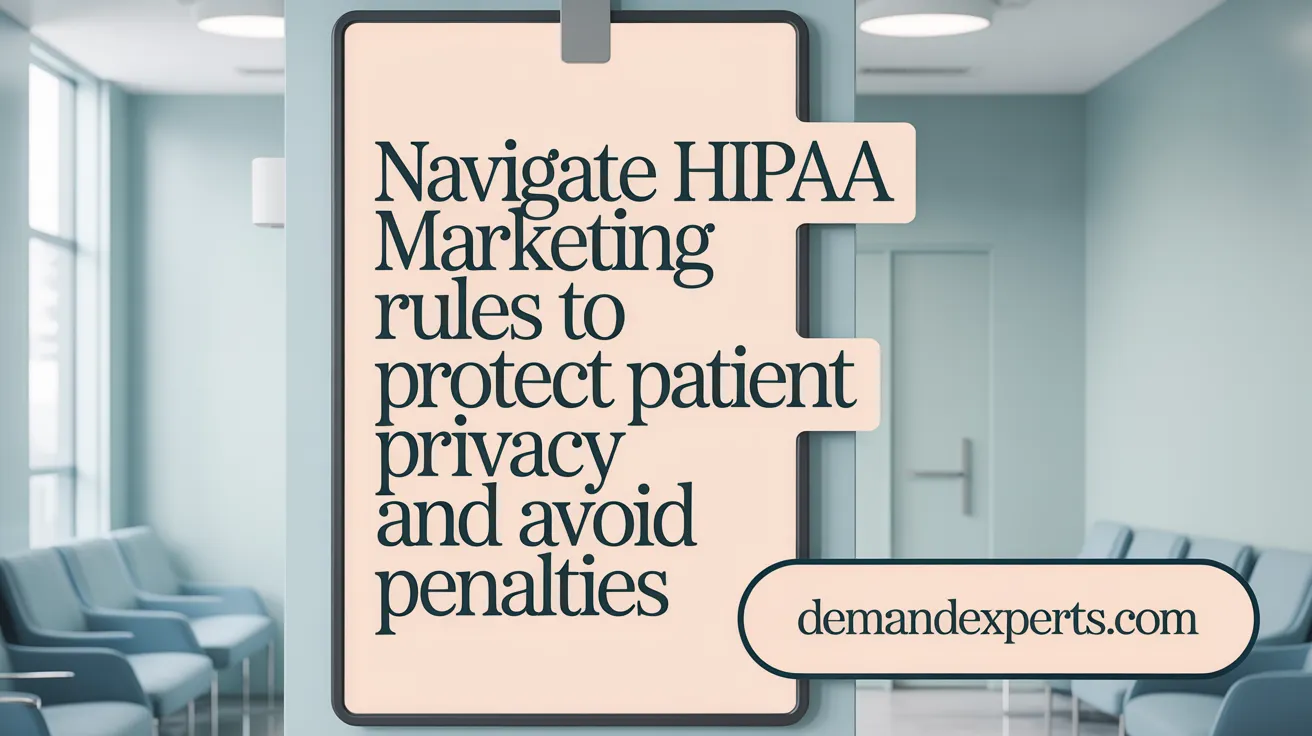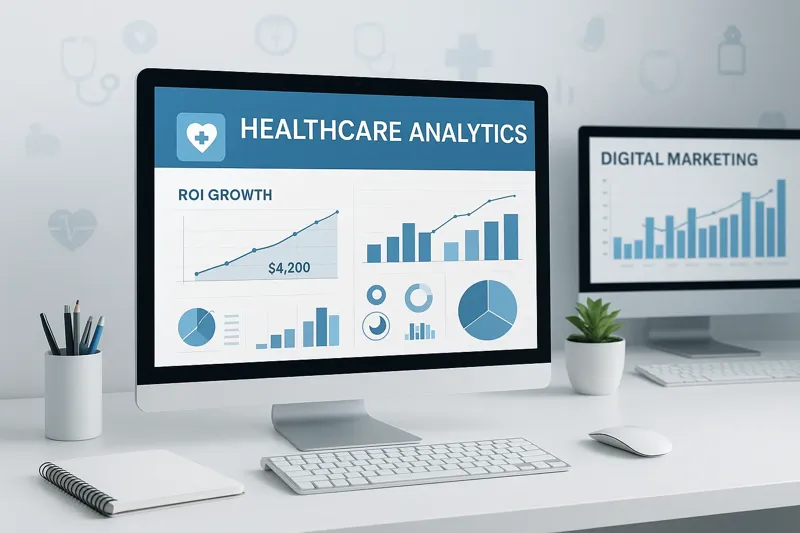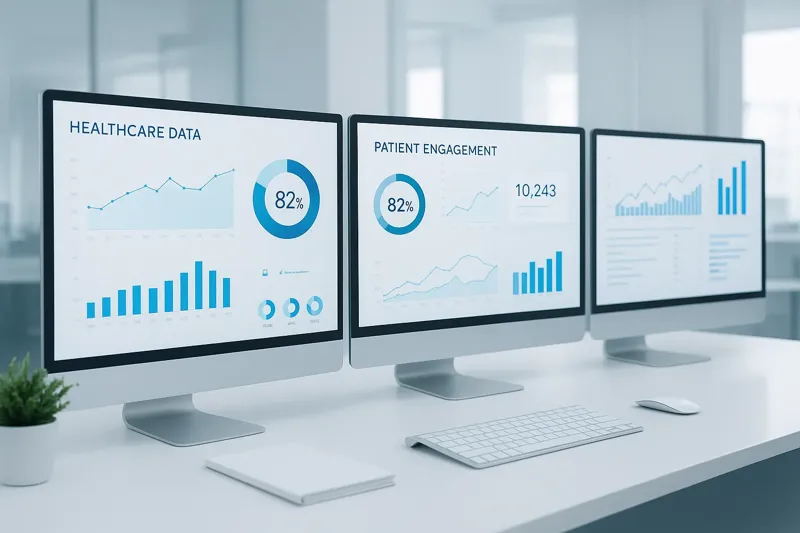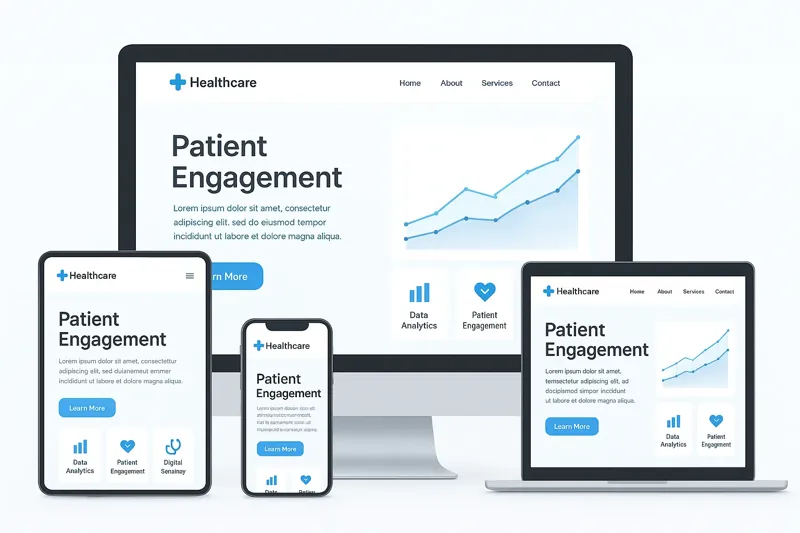The Imperative of Compliance in Healthcare Digital Marketing
In today's digital landscape, healthcare providers face unique challenges in marketing their services while strictly adhering to regulations designed to protect patient privacy. HIPAA compliance in digital marketing is crucial, as it safeguards Protected Health Information (PHI) from unauthorized use, helping organizations maintain trust and avoid costly penalties. This article explores essential practices, regulations, and strategies that healthcare entities must employ to ensure compliant and effective digital marketing campaigns.
Understanding HIPAA Marketing Rules and Their Impact

What defines marketing under HIPAA, and when is patient authorization required?
HIPAA defines marketing as any communication that encourages recipients to purchase or use a product or service. Before using or disclosing Protected Health Information (PHI) for marketing, healthcare organizations must obtain patient authorization for marketing. However, there are exceptions—such as face-to-face communications or distributing nominal promotional gifts exception under HIPAA—where authorization is not required. Unauthorized activities, like selling patient lists under HIPAA to third parties for marketing campaigns, are prohibited without explicit consent.
What are the exceptions to the HIPAA marketing rules?
Certain communications are exempt from the marketing definition and do not require patient authorization. These include:
- Face-to-face communications
- Nominal promotional gifts exception under HIPAA
- Prescription refill reminders
- Treatment or care recommendations
- Descriptions of health-related products or services provided directly by the covered entity without receiving remuneration
What are the risks of non-compliance and associated penalties?
Non-compliance with HIPAA marketing regulations carries serious consequences. Penalties can reach up to $2.1 million annually for each violation tier, alongside potential criminal charges. For example, a healthcare provider was fined $125,000 after improperly disclosing PHI to a reporter, demonstrating the risks to financial standing and reputation. Ensuring adherence to HIPAA marketing rules is critical to protect patient privacy and avoid costly infractions.
Healthcare organizations should carefully evaluate marketing strategies, obtain explicit patient consents, and work with HIPAA-compliant agencies to safeguard PHI and maintain compliance.
Digital Platforms and the Complexity of Protecting PHI Online

Why do social media and tracking technologies pose risks for HIPAA compliance in healthcare marketing?
Social media platforms and tracking tools like cookies and pixels can unintentionally collect or reveal protected health information (PHI) if not properly managed. HIPAA compliance in digital marketing regulations apply to all digital footprints linked to health data, including online behaviors and identifiers such as IP addresses. However, most major ad networks such as Google and Facebook do not sign Business Associate Agreements (BAAs), which are essential contracts required when handling PHI. Without BAAs, using these platforms for healthcare marketing campaigns risks violating HIPAA.
How can healthcare organizations mitigate risks associated with third-party digital marketing tools?
To protect PHI, healthcare entities must secure BAAs with every vendor involved in processing patient data. This ensures both technical and legal safeguards are in place. Organizations can further reduce risks by opting for HIPAA-compliant analytics solutions like Piwik PRO, which offer data encryption and strict access controls. Employing server-side tracking methods is another strategy; these route user data through secure servers, allowing PHI to be anonymized before any third-party transmission (HIPAA-compliant martech).
Best practices for securing digital marketing platforms
- Avoid placing tracking pixels on patient login or portal pages to prevent unauthorized PHI collection (Privacy powered marketing in healthcare).
- Use broad audience targeting rather than narrow, health-condition-specific retargeting to stay compliant (Feathr's Guide to HIPAA Compliant Digital Advertising).
- Partner with vendors who provide BAAs and prioritize encryption and audit logging (Healthcare marketing and HIPAA compliance).
- Train marketing teams on HIPAA’s digital footprint implications and compliance requirements (HIPAA compliance in digital marketing).
- Regularly audit marketing technologies and platforms to detect and resolve potential vulnerabilities (Healthcare marketing compliance).
By carefully managing digital tools and partnerships, healthcare marketers can harness online platforms effectively while safeguarding patient privacy and maintaining HIPAA compliance.
Email Marketing and Secure Patient Communication Strategies
Why is email marketing preferred in healthcare digital campaigns, and how can it be HIPAA-compliant?
Email marketing is widely favored in healthcare due to its substantially higher engagement rates, averaging around 41.23%, compared to much lower rates seen on social media platforms. This effectiveness makes email an essential tool for communicating with patients.
To maintain HIPAA compliance, healthcare providers must use encrypted email platforms that protect Protected Health Information (PHI) both in transit and at rest. Solutions such as Paubox HIPAA-compliant email marketing provide HIPAA-compliant email marketing services featuring strong encryption and HITRUST CSF certification. These platforms enable providers to securely send appointment reminders, health updates, and promotional messages without risking patient privacy.
What precautions should be taken regarding PHI in email marketing content?
It is critical that no PHI appears in email subject lines or unencrypted email content unless explicit authorization has been obtained from the patient. The entire message should be transmitted through fully encrypted channels to avoid unauthorized access.
Healthcare organizations must also ensure that any third-party vendors or marketing agencies involved in email communication have signed Business Associate Agreements (BAAs) in healthcare marketing, which legally bind them to uphold HIPAA security standards. This ensures that patient data is handled securely and reduces the risk of privacy breaches.
Importance of encryption and secure platforms
Using secure, HIPAA-compliant platforms for email marketing is not just about compliance but also about building patient trust. Encryption technologies like TLS and S/MIME protect sensitive data, making it inaccessible to unauthorized parties throughout the communication process. Secure platforms also provide audit logs and access controls to monitor and limit who can view sensitive health information.
Role of secure providers like Paubox
Providers like Paubox specialize in HIPAA-compliant email marketing by integrating encryption seamlessly, simplifying compliance for healthcare entities. Their platforms support sending personalized, secure messages while ensuring all regulatory requirements are met. This reduces administrative burden and legal risk, allowing healthcare marketers to focus on patient engagement.
Avoiding PHI in email subject lines and content
Emails should avoid including any patient-identifiable health information in subject lines or preview texts to prevent accidental disclosures. Messages should focus on non-sensitive content or use secure portals and links where patients can access protected information after authentication. This practice upholds privacy and aligns with HIPAA marketing rules.
Training, Policies, and Audit Practices for Compliance Assurance

What role does team training and policy implementation play in maintaining HIPAA compliance in digital marketing?
Regular team training is essential in healthcare marketing to keep staff well-informed about HIPAA compliance in digital marketing and GDPR regulations. It educates marketing teams on how protected health information (PHI) must be handled to avoid inadvertent privacy breaches. Along with training, implementing strict data controls for HIPAA compliance is indispensable. This includes clear privacy policies in healthcare marketing that define how PHI and other sensitive data should be managed within digital marketing campaigns. Together, these efforts foster a culture of privacy awareness that reduces risks and prepares teams to swiftly adapt to regulatory changes.
How do auditing and accountability safeguards enhance healthcare marketing compliance?
Regular audits of digital marketing campaigns help identify any compliance gaps, especially in interactions with third-party vendors who handle PHI or marketing data. Maintaining comprehensive records—such as audit trails for access and modifications of electronic PHI and copies of marketing communications—ensures accountability and readiness for regulatory reviews. Additionally, legal reviews of marketing materials and vendor contracts provide another layer of protection. These auditing and accountability safeguards collectively fortify compliance, reduce legal risks, and uphold patient trust in healthcare marketing efforts. For more details on maintaining HIPAA-compliant marketing communications and audit best practices, refer to these resources.
Navigating Additional Regulatory Frameworks and Advertising Oversight
Which regulatory bodies oversee healthcare advertising and what are their key requirements?
Healthcare advertising is regulated by multiple authorities. The Federal Trade Commission (FTC) ensures that all marketing is truthful, not misleading, and substantiated, covering a broad spectrum of OTC drugs and healthcare services. The Food and Drug Administration (FDA) specifically oversees advertising for prescription drugs and medical devices, mandating clear disclosures of risks and balanced information about benefits. Meanwhile, the Centers for Medicare and Medicaid Services (CMS) governs advertising related to Medicare and Medicaid products, requiring transparency, accuracy, and disclosure of limitations. Moreover, state and local laws add another layer of oversight, often with unique requirements affecting digital marketing approaches depending on jurisdiction. Adhering to all these rules is critical for healthcare marketers to avoid legal penalties and maintain public trust.
How do global regulations such as GDPR affect healthcare digital marketing?
The General Data Protection Regulation (GDPR) impact on healthcare marketing data usage imposes comprehensive rules on healthcare marketers operating in or targeting residents of the European Union. Marketers must obtain explicit consent before collecting any personal data, be transparent about data usage, and provide mechanisms for patients to access, update, or delete their information. Data collection must be limited to only what is necessary for the marketing purpose. GDPR’s strict privacy requirements necessitate that healthcare organizations implement robust compliance frameworks alongside HIPAA, particularly when campaigns cross international boundaries or involve multi-jurisdictional data use.
Applying these global regulations means healthcare marketers often need to tailor their digital strategies to respect local privacy laws, use HIPAA-compliant tools where applicable, and maintain clear patient communication about data usage to build trust and avoid non-compliance risks.
Strategies for Safe Use of Patient Data and Performance Tracking
How can healthcare marketers track campaign performance without violating HIPAA?
Healthcare marketers must carefully avoid using Protected Health Information (PHI) in digital advertising targeting to comply with HIPAA compliance in digital marketing. Instead of relying on sensitive health data, marketers should use aggregated and anonymized non-PHI metrics such as demographic details, geographic proximity, and generalized health interests for effective audience targeting.
For tracking patient referrals and conversions, healthcare entities can establish Business Associate Agreements (BAAs) with trusted vendors. These agreements allow secure and compliant integration of patient data systems without unauthorized PHI exposure. With BAAs in place, marketers can safely monitor campaign outcomes while respecting patient privacy.
Additionally, employing first-party data ecosystems enhances data control. These ecosystems minimize third-party access to raw health data, ensuring sensitive information is protected throughout the marketing process.
What are the benefits of using HIPAA-compliant Customer Data Platforms in healthcare marketing?
HIPAA-compliant Customer Data Platforms (CDPs) offer healthcare organizations a secure method to collect, unify, and analyze patient interaction data. These platforms enhance marketing personalization and patient engagement by integrating data from multiple sources while maintaining privacy safeguards.
Such CDPs anonymize PHI before any data sharing with external platforms, maintain detailed audit logs for compliance monitoring, and enforce strict access controls. This comprehensive security framework allows marketers to optimize campaigns effectively without risking regulatory violations.
By leveraging HIPAA-compliant CDPs, healthcare marketers can balance data-driven decision-making with the ethical and legal responsibility to protect patient information, fostering trust and ensuring long-term compliance.
Future Trends and Building a Culture of Compliance in Healthcare Marketing

What future regulations are anticipated to influence healthcare digital marketing compliance?
Regulatory bodies are increasingly focusing on AI-driven marketing tools in healthcare. These tools, while offering personalized and efficient marketing, pose risks such as misuse of protected health information (PHI) and the dissemination of misleading information. To address this, regulations are expected to tighten, requiring healthcare marketers to adopt AI strategies that prioritize patient privacy and accuracy.
There is also a growing movement toward global harmonization of data privacy laws. Efforts aim to align HIPAA, GDPR impact on healthcare marketing data usage, and other international frameworks, simplifying compliance for healthcare organizations that operate across borders. This harmonization will help create consistent standards for handling PHI and marketing communications worldwide.
Furthermore, patient-centric marketing approaches are gaining prominence. Future regulatory focus will emphasize transparency, requiring clear communication about data use and ensuring explicit patient consent is obtained. These approaches aim to build trust by placing patients at the center of marketing efforts and respecting their privacy choices.
How can healthcare organizations foster ongoing compliance amid evolving regulations?
Building a robust culture of compliance is essential. Healthcare organizations can achieve this by continuously educating and training marketing teams about current regulations and emerging trends. Collaboration with legal counsel and IT professionals should be regular to interpret new rules and implement necessary changes proactively.
Adopting advanced HIPAA-compliant technologies—such as secure email platforms, encrypted data storage, and compliant customer data platforms—helps safeguard PHI while enabling effective marketing. Regular audits and risk assessments ensure that marketing practices stay aligned with legal requirements.
Engaging interdisciplinary teams early in campaign development allows organizations to innovate responsibly. Such collaboration helps balance creative marketing with the privacy and security mandates, preserving patient trust while maximizing marketing success.
Sustaining HIPAA Compliance for Effective Healthcare Marketing
Ensuring healthcare compliance in digital marketing campaigns requires an in-depth understanding of HIPAA rules, diligent management of patient data, and strategic collaboration with HIPAA-compliant vendors. Emphasizing secure communication channels, robust training, and vigilant audits protects organizations from costly violations and fosters patient trust. As regulations evolve, especially concerning digital tracking and AI technologies, healthcare providers must prioritize a culture of compliance and invest in advanced, privacy-focused technologies. By harmonizing regulatory adherence with innovative marketing strategies, healthcare organizations can effectively engage patients while safeguarding sensitive health information.
The Imperative of Compliance in Healthcare Digital Marketing
In today's digital landscape, healthcare providers face unique challenges in marketing their services while strictly adhering to regulations designed to protect patient privacy. HIPAA compliance in digital marketing is crucial, as it safeguards Protected Health Information (PHI) from unauthorized use, helping organizations maintain trust and avoid costly penalties. This article explores essential practices, regulations, and strategies that healthcare entities must employ to ensure compliant and effective digital marketing campaigns.
Understanding HIPAA Marketing Rules and Their Impact

What defines marketing under HIPAA, and when is patient authorization required?
HIPAA defines marketing as any communication that encourages recipients to purchase or use a product or service. Before using or disclosing Protected Health Information (PHI) for marketing, healthcare organizations must obtain patient authorization for marketing. However, there are exceptions—such as face-to-face communications or distributing nominal promotional gifts exception under HIPAA—where authorization is not required. Unauthorized activities, like selling patient lists under HIPAA to third parties for marketing campaigns, are prohibited without explicit consent.
What are the exceptions to the HIPAA marketing rules?
Certain communications are exempt from the marketing definition and do not require patient authorization. These include:
- Face-to-face communications
- Nominal promotional gifts exception under HIPAA
- Prescription refill reminders
- Treatment or care recommendations
- Descriptions of health-related products or services provided directly by the covered entity without receiving remuneration
What are the risks of non-compliance and associated penalties?
Non-compliance with HIPAA marketing regulations carries serious consequences. Penalties can reach up to $2.1 million annually for each violation tier, alongside potential criminal charges. For example, a healthcare provider was fined $125,000 after improperly disclosing PHI to a reporter, demonstrating the risks to financial standing and reputation. Ensuring adherence to HIPAA marketing rules is critical to protect patient privacy and avoid costly infractions.
Healthcare organizations should carefully evaluate marketing strategies, obtain explicit patient consents, and work with HIPAA-compliant agencies to safeguard PHI and maintain compliance.
Digital Platforms and the Complexity of Protecting PHI Online

Why do social media and tracking technologies pose risks for HIPAA compliance in healthcare marketing?
Social media platforms and tracking tools like cookies and pixels can unintentionally collect or reveal protected health information (PHI) if not properly managed. HIPAA compliance in digital marketing regulations apply to all digital footprints linked to health data, including online behaviors and identifiers such as IP addresses. However, most major ad networks such as Google and Facebook do not sign Business Associate Agreements (BAAs), which are essential contracts required when handling PHI. Without BAAs, using these platforms for healthcare marketing campaigns risks violating HIPAA.
How can healthcare organizations mitigate risks associated with third-party digital marketing tools?
To protect PHI, healthcare entities must secure BAAs with every vendor involved in processing patient data. This ensures both technical and legal safeguards are in place. Organizations can further reduce risks by opting for HIPAA-compliant analytics solutions like Piwik PRO, which offer data encryption and strict access controls. Employing server-side tracking methods is another strategy; these route user data through secure servers, allowing PHI to be anonymized before any third-party transmission (HIPAA-compliant martech).
Best practices for securing digital marketing platforms
- Avoid placing tracking pixels on patient login or portal pages to prevent unauthorized PHI collection (Privacy powered marketing in healthcare).
- Use broad audience targeting rather than narrow, health-condition-specific retargeting to stay compliant (Feathr's Guide to HIPAA Compliant Digital Advertising).
- Partner with vendors who provide BAAs and prioritize encryption and audit logging (Healthcare marketing and HIPAA compliance).
- Train marketing teams on HIPAA’s digital footprint implications and compliance requirements (HIPAA compliance in digital marketing).
- Regularly audit marketing technologies and platforms to detect and resolve potential vulnerabilities (Healthcare marketing compliance).
By carefully managing digital tools and partnerships, healthcare marketers can harness online platforms effectively while safeguarding patient privacy and maintaining HIPAA compliance.
Email Marketing and Secure Patient Communication Strategies
Why is email marketing preferred in healthcare digital campaigns, and how can it be HIPAA-compliant?
Email marketing is widely favored in healthcare due to its substantially higher engagement rates, averaging around 41.23%, compared to much lower rates seen on social media platforms. This effectiveness makes email an essential tool for communicating with patients.
To maintain HIPAA compliance, healthcare providers must use encrypted email platforms that protect Protected Health Information (PHI) both in transit and at rest. Solutions such as Paubox HIPAA-compliant email marketing provide HIPAA-compliant email marketing services featuring strong encryption and HITRUST CSF certification. These platforms enable providers to securely send appointment reminders, health updates, and promotional messages without risking patient privacy.
What precautions should be taken regarding PHI in email marketing content?
It is critical that no PHI appears in email subject lines or unencrypted email content unless explicit authorization has been obtained from the patient. The entire message should be transmitted through fully encrypted channels to avoid unauthorized access.
Healthcare organizations must also ensure that any third-party vendors or marketing agencies involved in email communication have signed Business Associate Agreements (BAAs) in healthcare marketing, which legally bind them to uphold HIPAA security standards. This ensures that patient data is handled securely and reduces the risk of privacy breaches.
Importance of encryption and secure platforms
Using secure, HIPAA-compliant platforms for email marketing is not just about compliance but also about building patient trust. Encryption technologies like TLS and S/MIME protect sensitive data, making it inaccessible to unauthorized parties throughout the communication process. Secure platforms also provide audit logs and access controls to monitor and limit who can view sensitive health information.
Role of secure providers like Paubox
Providers like Paubox specialize in HIPAA-compliant email marketing by integrating encryption seamlessly, simplifying compliance for healthcare entities. Their platforms support sending personalized, secure messages while ensuring all regulatory requirements are met. This reduces administrative burden and legal risk, allowing healthcare marketers to focus on patient engagement.
Avoiding PHI in email subject lines and content
Emails should avoid including any patient-identifiable health information in subject lines or preview texts to prevent accidental disclosures. Messages should focus on non-sensitive content or use secure portals and links where patients can access protected information after authentication. This practice upholds privacy and aligns with HIPAA marketing rules.
Training, Policies, and Audit Practices for Compliance Assurance

What role does team training and policy implementation play in maintaining HIPAA compliance in digital marketing?
Regular team training is essential in healthcare marketing to keep staff well-informed about HIPAA compliance in digital marketing and GDPR regulations. It educates marketing teams on how protected health information (PHI) must be handled to avoid inadvertent privacy breaches. Along with training, implementing strict data controls for HIPAA compliance is indispensable. This includes clear privacy policies in healthcare marketing that define how PHI and other sensitive data should be managed within digital marketing campaigns. Together, these efforts foster a culture of privacy awareness that reduces risks and prepares teams to swiftly adapt to regulatory changes.
How do auditing and accountability safeguards enhance healthcare marketing compliance?
Regular audits of digital marketing campaigns help identify any compliance gaps, especially in interactions with third-party vendors who handle PHI or marketing data. Maintaining comprehensive records—such as audit trails for access and modifications of electronic PHI and copies of marketing communications—ensures accountability and readiness for regulatory reviews. Additionally, legal reviews of marketing materials and vendor contracts provide another layer of protection. These auditing and accountability safeguards collectively fortify compliance, reduce legal risks, and uphold patient trust in healthcare marketing efforts. For more details on maintaining HIPAA-compliant marketing communications and audit best practices, refer to these resources.
Navigating Additional Regulatory Frameworks and Advertising Oversight
Which regulatory bodies oversee healthcare advertising and what are their key requirements?
Healthcare advertising is regulated by multiple authorities. The Federal Trade Commission (FTC) ensures that all marketing is truthful, not misleading, and substantiated, covering a broad spectrum of OTC drugs and healthcare services. The Food and Drug Administration (FDA) specifically oversees advertising for prescription drugs and medical devices, mandating clear disclosures of risks and balanced information about benefits. Meanwhile, the Centers for Medicare and Medicaid Services (CMS) governs advertising related to Medicare and Medicaid products, requiring transparency, accuracy, and disclosure of limitations. Moreover, state and local laws add another layer of oversight, often with unique requirements affecting digital marketing approaches depending on jurisdiction. Adhering to all these rules is critical for healthcare marketers to avoid legal penalties and maintain public trust.
How do global regulations such as GDPR affect healthcare digital marketing?
The General Data Protection Regulation (GDPR) impact on healthcare marketing data usage imposes comprehensive rules on healthcare marketers operating in or targeting residents of the European Union. Marketers must obtain explicit consent before collecting any personal data, be transparent about data usage, and provide mechanisms for patients to access, update, or delete their information. Data collection must be limited to only what is necessary for the marketing purpose. GDPR’s strict privacy requirements necessitate that healthcare organizations implement robust compliance frameworks alongside HIPAA, particularly when campaigns cross international boundaries or involve multi-jurisdictional data use.
Applying these global regulations means healthcare marketers often need to tailor their digital strategies to respect local privacy laws, use HIPAA-compliant tools where applicable, and maintain clear patient communication about data usage to build trust and avoid non-compliance risks.
Strategies for Safe Use of Patient Data and Performance Tracking
How can healthcare marketers track campaign performance without violating HIPAA?
Healthcare marketers must carefully avoid using Protected Health Information (PHI) in digital advertising targeting to comply with HIPAA compliance in digital marketing. Instead of relying on sensitive health data, marketers should use aggregated and anonymized non-PHI metrics such as demographic details, geographic proximity, and generalized health interests for effective audience targeting.
For tracking patient referrals and conversions, healthcare entities can establish Business Associate Agreements (BAAs) with trusted vendors. These agreements allow secure and compliant integration of patient data systems without unauthorized PHI exposure. With BAAs in place, marketers can safely monitor campaign outcomes while respecting patient privacy.
Additionally, employing first-party data ecosystems enhances data control. These ecosystems minimize third-party access to raw health data, ensuring sensitive information is protected throughout the marketing process.
What are the benefits of using HIPAA-compliant Customer Data Platforms in healthcare marketing?
HIPAA-compliant Customer Data Platforms (CDPs) offer healthcare organizations a secure method to collect, unify, and analyze patient interaction data. These platforms enhance marketing personalization and patient engagement by integrating data from multiple sources while maintaining privacy safeguards.
Such CDPs anonymize PHI before any data sharing with external platforms, maintain detailed audit logs for compliance monitoring, and enforce strict access controls. This comprehensive security framework allows marketers to optimize campaigns effectively without risking regulatory violations.
By leveraging HIPAA-compliant CDPs, healthcare marketers can balance data-driven decision-making with the ethical and legal responsibility to protect patient information, fostering trust and ensuring long-term compliance.
Future Trends and Building a Culture of Compliance in Healthcare Marketing

What future regulations are anticipated to influence healthcare digital marketing compliance?
Regulatory bodies are increasingly focusing on AI-driven marketing tools in healthcare. These tools, while offering personalized and efficient marketing, pose risks such as misuse of protected health information (PHI) and the dissemination of misleading information. To address this, regulations are expected to tighten, requiring healthcare marketers to adopt AI strategies that prioritize patient privacy and accuracy.
There is also a growing movement toward global harmonization of data privacy laws. Efforts aim to align HIPAA, GDPR impact on healthcare marketing data usage, and other international frameworks, simplifying compliance for healthcare organizations that operate across borders. This harmonization will help create consistent standards for handling PHI and marketing communications worldwide.
Furthermore, patient-centric marketing approaches are gaining prominence. Future regulatory focus will emphasize transparency, requiring clear communication about data use and ensuring explicit patient consent is obtained. These approaches aim to build trust by placing patients at the center of marketing efforts and respecting their privacy choices.
How can healthcare organizations foster ongoing compliance amid evolving regulations?
Building a robust culture of compliance is essential. Healthcare organizations can achieve this by continuously educating and training marketing teams about current regulations and emerging trends. Collaboration with legal counsel and IT professionals should be regular to interpret new rules and implement necessary changes proactively.
Adopting advanced HIPAA-compliant technologies—such as secure email platforms, encrypted data storage, and compliant customer data platforms—helps safeguard PHI while enabling effective marketing. Regular audits and risk assessments ensure that marketing practices stay aligned with legal requirements.
Engaging interdisciplinary teams early in campaign development allows organizations to innovate responsibly. Such collaboration helps balance creative marketing with the privacy and security mandates, preserving patient trust while maximizing marketing success.
Sustaining HIPAA Compliance for Effective Healthcare Marketing
Ensuring healthcare compliance in digital marketing campaigns requires an in-depth understanding of HIPAA rules, diligent management of patient data, and strategic collaboration with HIPAA-compliant vendors. Emphasizing secure communication channels, robust training, and vigilant audits protects organizations from costly violations and fosters patient trust. As regulations evolve, especially concerning digital tracking and AI technologies, healthcare providers must prioritize a culture of compliance and invest in advanced, privacy-focused technologies. By harmonizing regulatory adherence with innovative marketing strategies, healthcare organizations can effectively engage patients while safeguarding sensitive health information.






